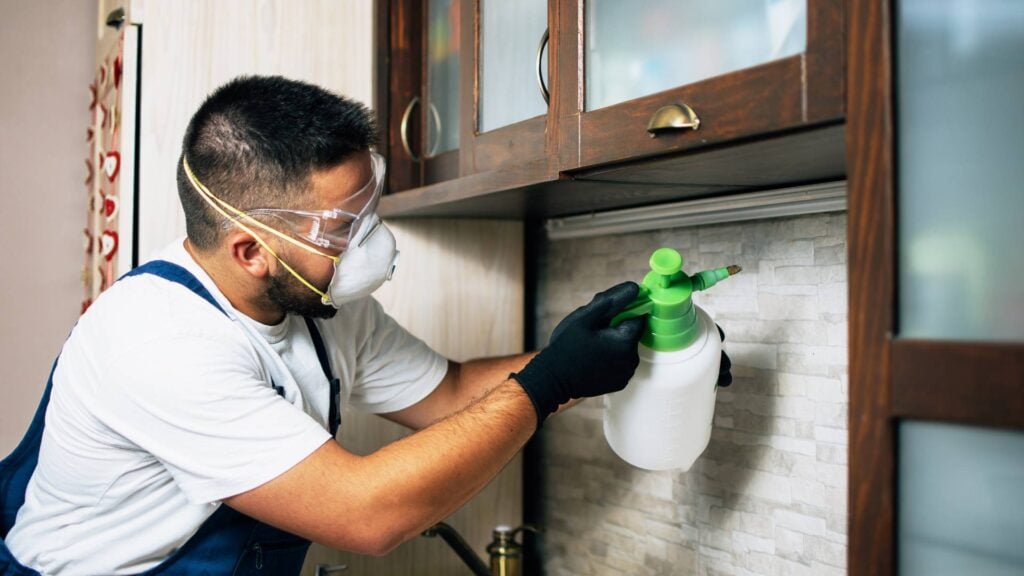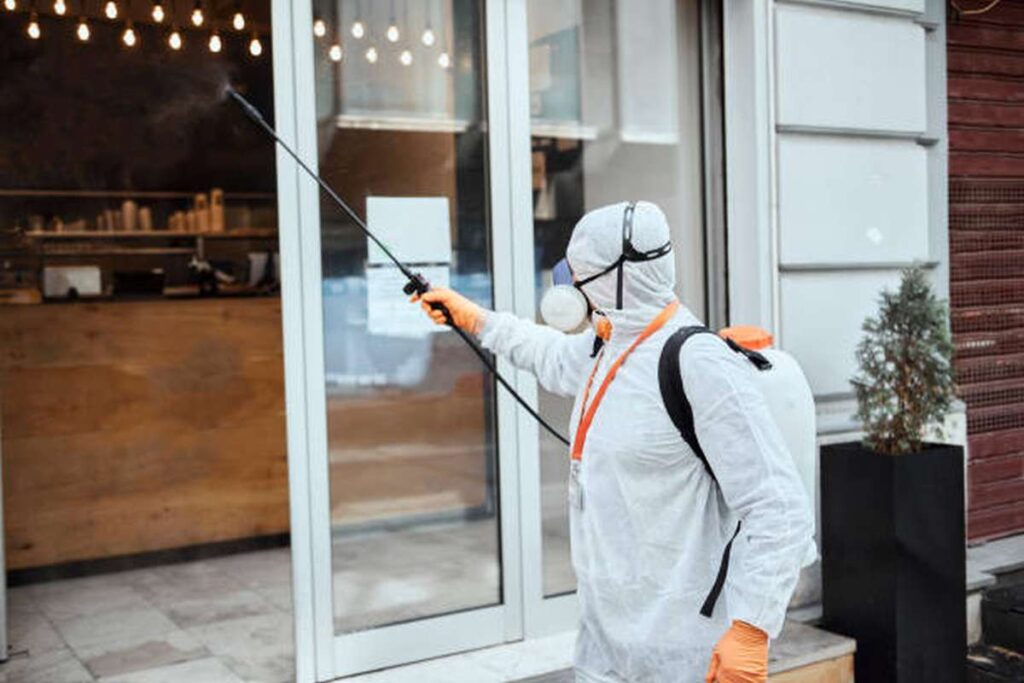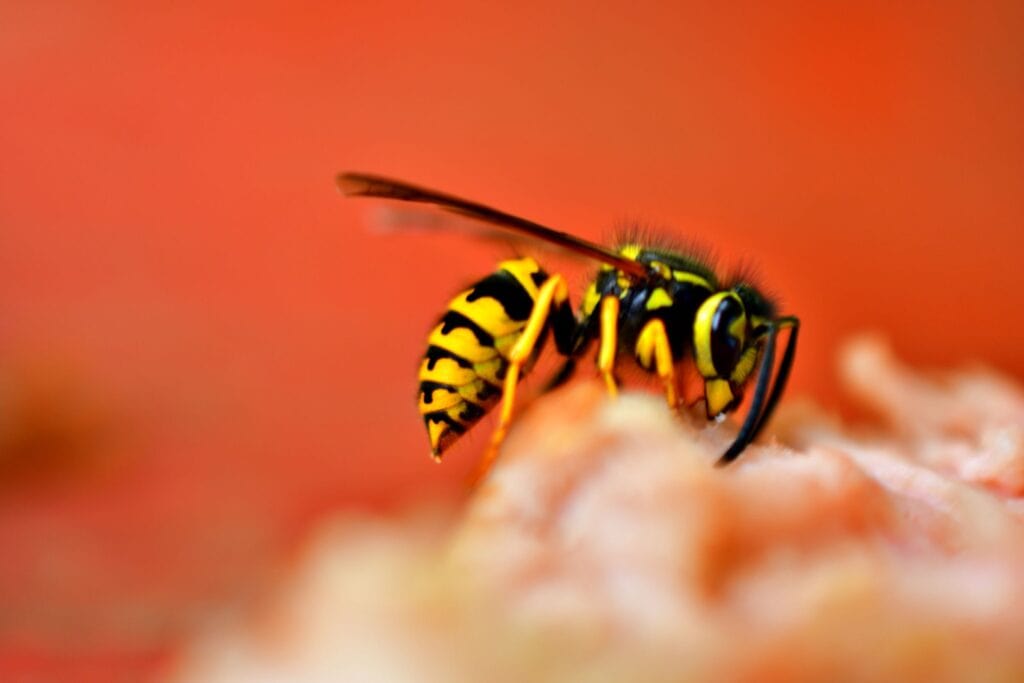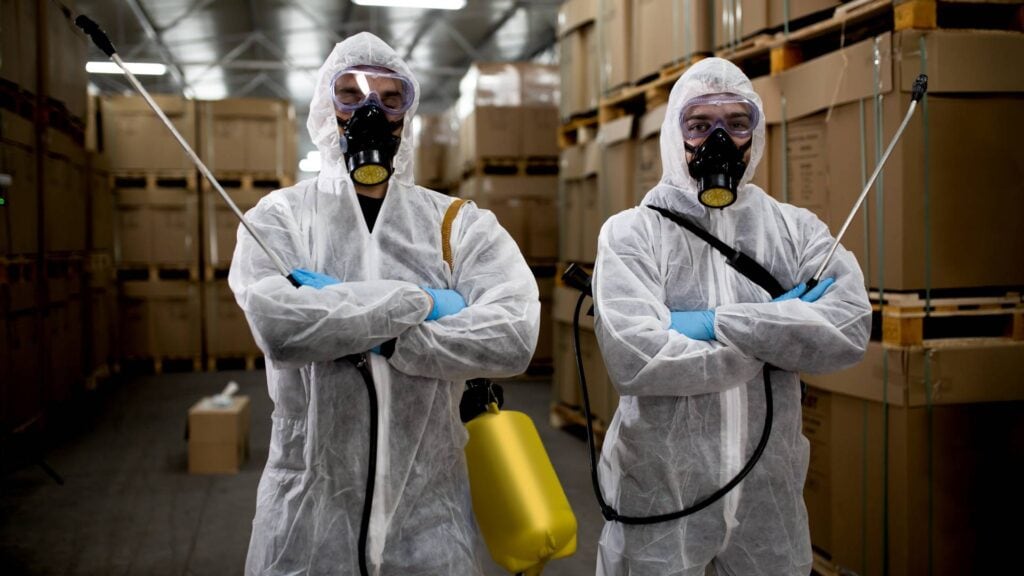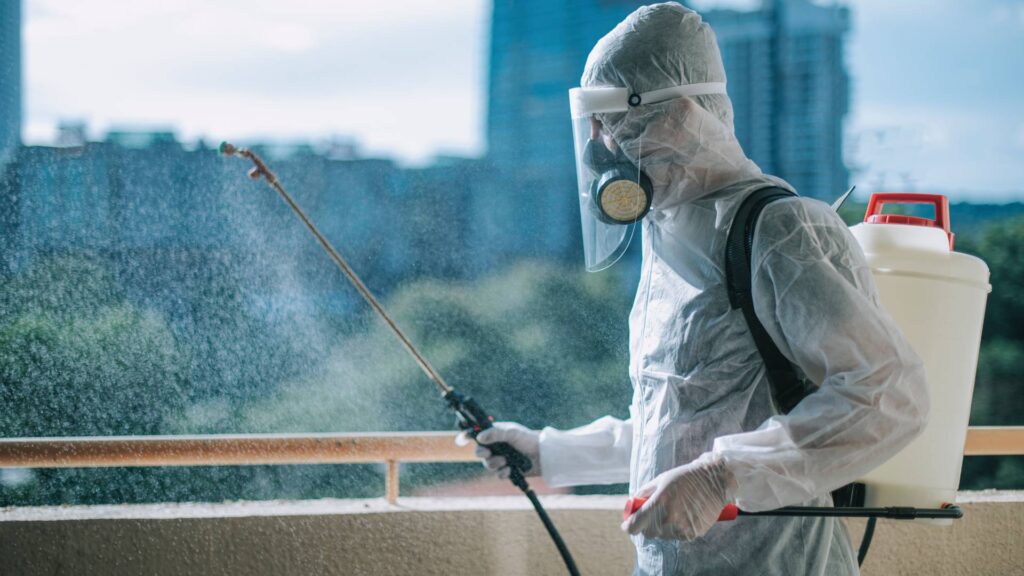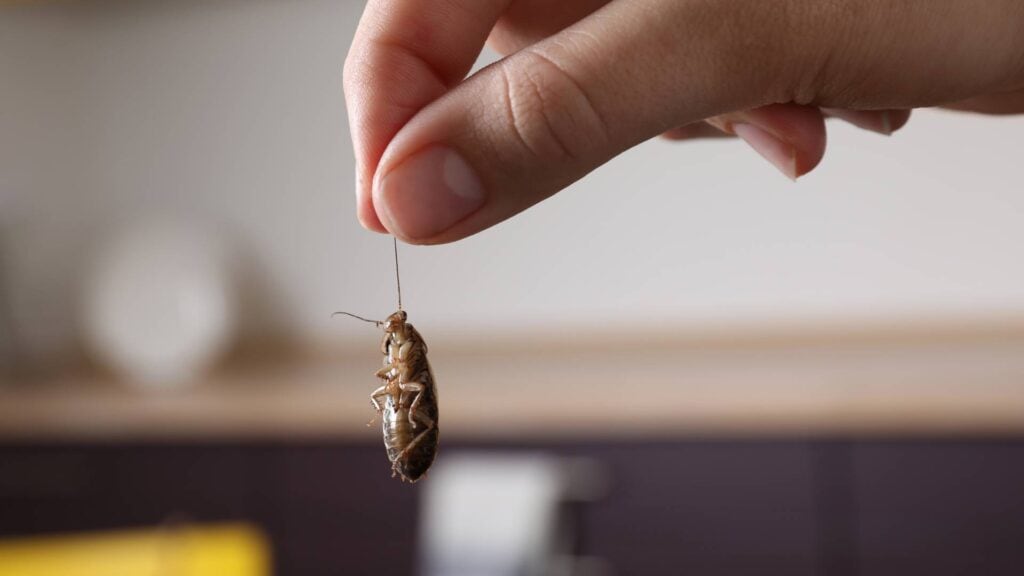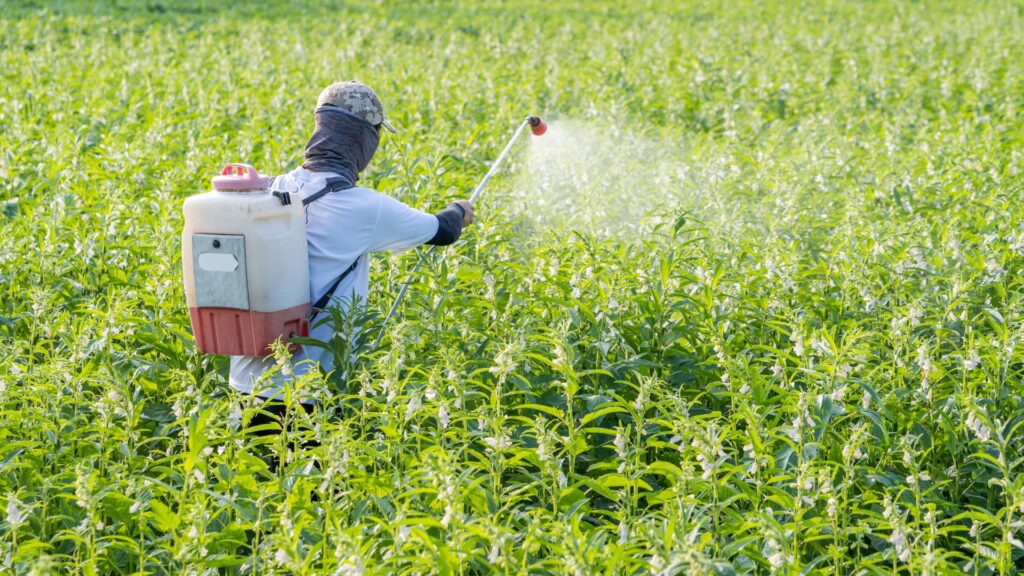DIY (Do It Yourself) versus professional pest control methods. Whether you're facing a pesky ant invasion in your kitchen or a potential termite threat in your home's foundation, the question remains: should you tackle the problem yourself or enlist professional pest control services?
In this comprehensive exploration, we'll dissect the advantages and limitations of both approaches, offering insights to help you make informed decisions about protecting your home, family, and environment from unwanted pests.
What Should I Know About DIY Pest Control?
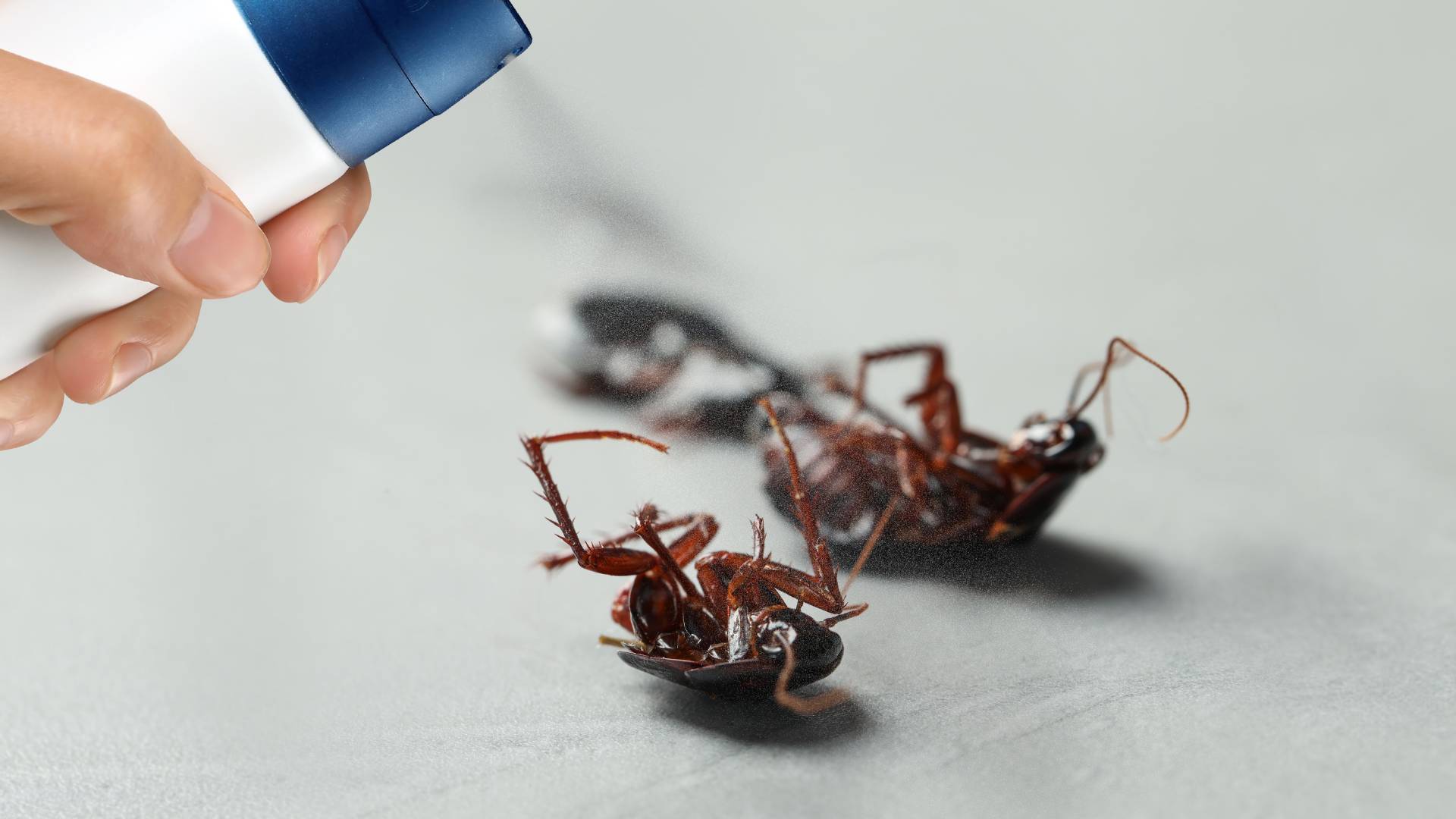
DIY pest control is a cost-effective and immediate solution for homeowners facing pest infestations. It offers the advantage of selecting preferred treatment products and knowing exactly where treatments are applied, which is crucial for homes with pets or small children. However, DIY methods have limitations, including a lack of professional expertise, potential safety risks, and the possibility of further spreading the infestation. Professional pest control, on the other hand, provides expertise, tailored solutions, and safety, but at a higher cost. The choice between DIY and professional pest control depends on the pest type, infestation severity, and the homeowner's comfort with pest management tasks. Combining DIY preventive measures with professional services for complex issues, hybrid approaches can also be practical.
Key Insights:
- Cost-Effectiveness vs. Expertise: DIY pest control can save money, but it needs more specialised knowledge and professional equipment, which may lead to ineffective or incomplete treatments.
- Safety and Health Risks: DIY methods can pose safety risks, especially when dealing with hazardous pests or chemicals. Professional services adhere to safety standards and regulations, minimising risks to humans and pets.
- Complex Infestations Require Professional Help: For severe or complex pest problems, professional pest control offers customised, practical solutions that DIY methods cannot match.
Considering these factors, homeowners must assess their situation carefully before deciding on a DIY approach or seeking professional pest control services.
What Do Professional Pest Control Services Offer?
Professional pest control services offer a comprehensive solution to the persistent problem of pest infestations in residential and commercial settings. These services are not just about eliminating pests; they provide a strategic approach to safeguard properties through expertise, tailored solutions, and preventive measures. Let's delve into professional pest control services' multifaceted benefits and operations, drawing insights from industry experts and leading service providers.
The Essence Of Professional Pest Control
Professional pest control goes beyond the mere application of pesticides. It encompasses a deep understanding of pest behaviour, biology, and the most effective methods for their management and eradication. Experts in the field are equipped with the knowledge and tools to tackle various pests, from everyday household nuisances like ants and cockroaches to more formidable foes such as termites and rodents. These professionals employ various strategies, including Integrated Pest Management (IPM) and biological control, to address pest issues in an environmentally responsible and sustainable manner.
Why Choose Professional Services?
- Expertise and Customised Solutions: Professional pest controllers bring expertise unmatched by DIY methods. They develop customised treatment plans based on the specific type of pest and the severity of the infestation, ensuring effective and long-lasting solutions.
- Safety and Efficiency: Safely handling pesticides is a critical aspect of pest control that professionals are trained for. They apply treatments to minimise risks to humans, pets, and the environment, all while achieving efficient pest eradication.
- Preventive Measures for Long-Term Protection: Professionals don't just react to infestations; they proactively implement preventive measures to keep pests at bay. Regular inspections and maintenance plans are part of their strategy to prevent future infestations, saving property owners from potential damage and additional costs.
- Time and Convenience: Dealing with pests can be time-consuming and stressful. Professional services offer a convenient and swift solution, allowing homeowners and business managers to focus on their daily lives without the hassle of battling pests.
- Cost-Effectiveness: While the initial cost of hiring a professional service may seem high, it often leads to long-term savings. Professionals address the root cause of the problem, preventing future infestations and the need for costly repairs or treatments.
The Business Of Pest Control
The pest control industry is a vital sector that addresses the immediate concerns of pest infestations and contributes to public health and safety. Companies like JTO Pest Control exemplify the industry's commitment to delivering high-quality, effective pest management solutions. With a focus on customer satisfaction, these companies use cutting-edge techniques and eco-friendly products to ensure that homes and businesses remain pest-free.
Comparing DIY and Professional Pest Control
When managing pest infestations, homeowners often need clarification on DIY (Do-It-Yourself) methods and hiring professional pest control services. Each approach has its advantages and limitations, influenced by factors such as the severity of the infestation, cost considerations, convenience, safety, and the effectiveness of the treatments.
DIY Pest Control: Pros And Cons
Pros:
- Cost-Effectiveness: DIY pest control can be more budget-friendly, especially for minor infestations, as it eliminates needing professional services.
- Immediate Action: Homeowners can act immediately upon noticing pests without waiting for a professional appointment.
- Knowledge and Control: Engaging in DIY pest control allows homeowners to learn about pests and their behaviour, offering a sense of control over the situation.
Cons:
- Limited Expertise: Withers may need specialised knowledge to identify able-specialised potentially leading to complete eradication.
- Safety Risks: DIY methods, especially those involving chemicals, pose safety risks if not handled correctly, potentially endangering humans, pets, and the environment.
- Complex Infestations: Severe or intricate pest problems may require specialised techniques beyond the reach of DIY efforts.
Professional Pest Control: Advantages
Expertise and Experience: Professionals possess extensive training in identifying and treating various pests, ensuring effective and safe eradication.
Tailored Solutions: Pest control services offer customised medicines based on the specific pest problem, ensuring thorough and long-term control.
Safety and Regulations: Professionals adhere to safety standards and use registered products, minimising contaminants and the environment.
Integrated Pest Management (IPM): This approach combines chemical and non-chemical methods, focusing on long-term prevention and minimal chemical use.
Making The Right Choice
The decision between DIY and professional pest control depends on several factors:
Pest Type and Severity: Minor or common pests may be manageable with DIY methods, while severe or complex infestations typically require professional intervention.
Personal Time and Capability: Consider your ability and willingness to research, apply, and monitor DIY treatments versus the convenience of hiring professionals.
Potential Risks and Consequences: Assess the risks associated with the pest problem and the potential for property damage or health hazards.
Hybrid Approach
In some cases, a hybrid approach can be practical, combining preventive measures and basic DIY techniques with professional services for inspections, targeted treatments, or complex infestations.
Factors To Consider When Choosing Between DIY and Professional Pest Control
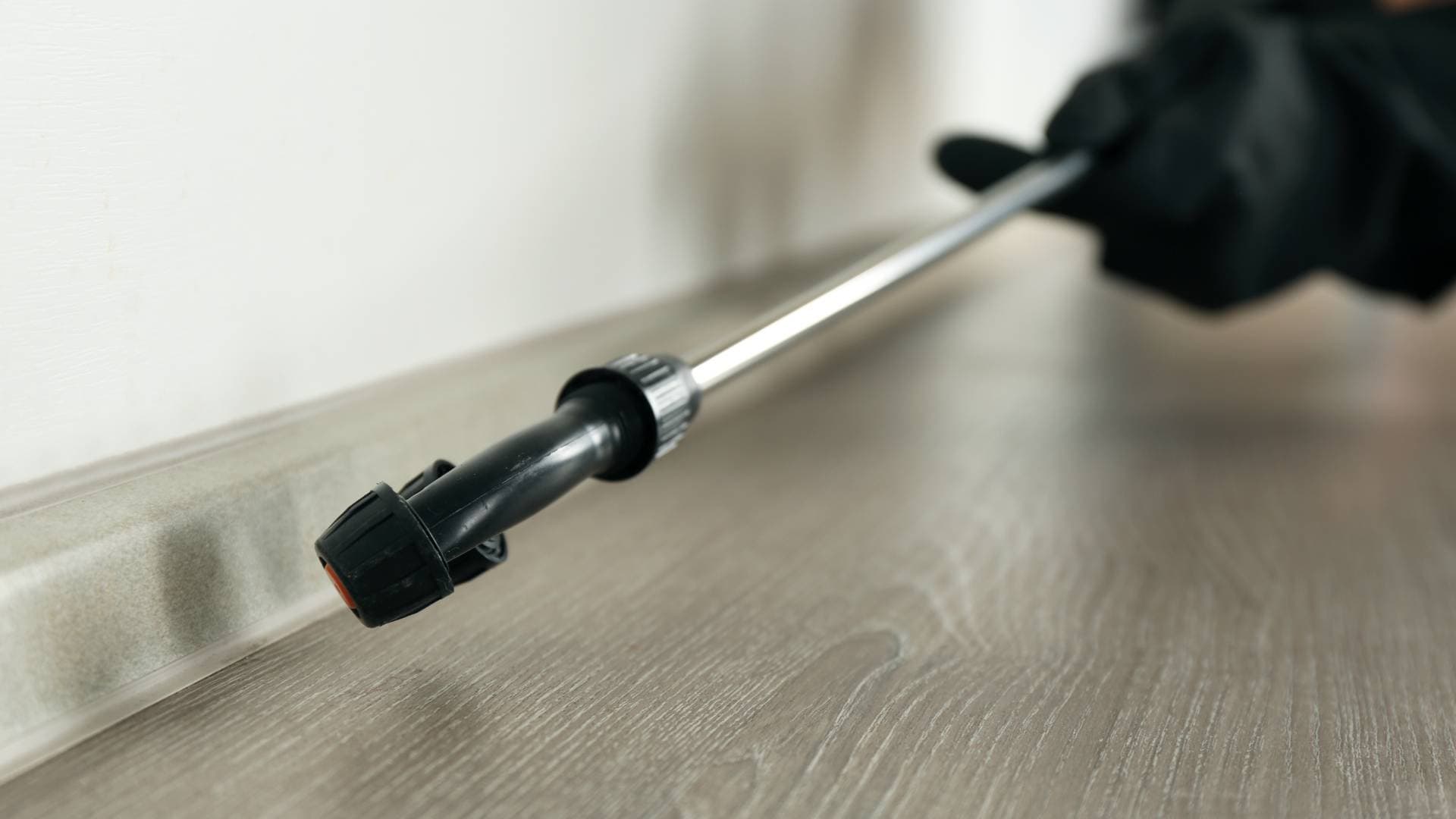
Deciding between DIY and professional pest control is a significant choice for homeowners facing pest infestations. This decision can impact the effectiveness of pest management, safety, cost, and convenience. Here's a comprehensive look at the factors to consider, drawing insights from various expert sources.
Pest Type And Infestation Level
- Pest Identification: Knowing the type of pest is crucial. Some pests, like ants and mosquitos, might be manageable with DIY methods. However, pests like termites, bed bugs, and rodents often require professional expertise due to their resilience and the complexity of their infestations.
- Infestation Severity: The extent of the infestation plays a significant role. Small, localised localised practices are suitable for DIY solutions. In contrast, large-scale infestations usually necessitate professional intervention to address the issue at its source and prevent recurrence effectively.
Cost Considerations
- DIY Affordability: Initially, DIY pest control appears more budget-friendly, with many solutions costing significantly less than professional services. However, the effectiveness of these methods should be considered, as ineffective DIY attempts might lead to increased costs over time.
- Professional Services: While professional pest control services have a higher upfront cost, they offer comprehensive solutions that address the root cause of infestations. This can save money in the long run by preventing property damage and eliminating the need for repeated treatments.
Convenience And Time
- DIY Flexibility: DIY methods allow for immediate action, which can be convenient for quickly addressing minor issues. However, the time and effort required to research, apply, and monitor the effectiveness of DIY solutions should not be underestimated.
- Professional Ease: Hiring professionals can save time and hassle. Expert exterminators handle the entire process, from assessment to treatment, allowing homeowners to focus on other priorities. Scheduling and availability are considerations, as professional services may have a wait time.
Safety And Health Risks
- DIY Safety Concerns: Handling chemicals and implementing pest control measures without proper knowledge can pose risks to health, pets, and the environment. Misapplication can lead to ineffective treatment and potential hazards.
- Professional Assurance: Professionals are trained to use pest control substances safely and effectively, minimising contaminants and pets. They adhere to regulations and employ safe methods for people and the environment.
Effectiveness And Long-Term Solutions
- DIY Limitations: DIY pest control might offer a temporary fix but may not always provide a long-term solution, especially for severe or persistent infestations.
- Professional Effectiveness: Professionals bring expertise and advanced methods to the table, offering tailored solutions that are more likely to result in complete eradication and prevent future infestations.
Environmental Considerations
- Eco-friendly Options: Both DIY and professional routes offer environmentally friendly alternatives. Natural DIY methods and professional integrated pest management (IPM) practices aim to minimise environmental impact while effectively managing pest issues.
Conclusion
DIY pest control is a cost-effective and immediate solution for homeowners facing pest infestations. Still, it has limitations, such as a lack of professional expertise, potential safety risks, and the possibility of spreading the infestation. Professional pest control, on the other hand, provides expertise, tailored solutions, and safety at a higher cost. The choice between DIY and professional pest control depends on the pest type, infestation severity, and the homeowner's comfort with pest management tasks.
Professional pest control services offer a comprehensive solution to pest infestations in residential and commercial settings. They go beyond the mere application of pesticides and employ strategies like Integrated Pest Management (IPM) and biological control to address pest issues in an environmentally responsible and sustainable manner. Professional pest controllers bring expertise unmatched by DIY methods, develop customised treatment plans based on the specific type of pest and the severity of the infestation, ensure effective and long-lasting solutions, and offer safety and efficiency.
Professional pest control services also offer time and convenience, allowing homeowners and business managers to focus on their daily lives without the hassle of battling pests. Despite the initial cost, hiring a professional service often leads to long-term savings, as they address the root cause of the problem, preventing future infestations and the need for costly repairs or treatments.
DIY pest control methods offer homeowners cost-effectiveness, immediate action, and knowledge and control. However, they also have limitations, such as limited expertise, safety risks, and complex infestations. Professional pest control services have expertise, experience, tailored solutions, and adhere to safety standards. They also offer Integrated Pest Management (IPM), combining chemical and non-chemical methods for long-term prevention.
The decision between DIY and professional pest control depends on pest type and severity, personal time and capability, potential risks and consequences, and a hybrid approach. Factors to consider when choosing between DIY and professional pest control include pest type and severity, cost considerations, convenience and time, safety concerns, and environmental considerations.
DIY methods may be more budget-friendly but may only sometimes provide a long-term solution, especially for severe infestations. Conversely, professionals offer expertise and advanced methods, ensuring complete eradication and preventing future infestations.
DIY and professional pest control routes offer environmentally friendly alternatives, such as natural DIY methods and professional integrated pest management (IPM) practices. By considering these factors, homeowners can decide about pest control methods and their effectiveness.
Content Summary
- The ongoing debate between DIY and professional pest control methods addresses the common homeowner dilemma.
- Whether it's battling ants in the kitchen or potential termite threats, the choice between handling it yourself or seeking professional help is crucial.
- This exploration aims to give homeowners insights to make informed pest management decisions.
- DIY pest control offers immediate relief and cost savings, allowing homeowners to select preferred treatment products.
- However, DIY methods lack professional expertise and may pose safety risks, potentially exacerbating the problem.
- Professional pest control services provide tailored solutions and expertise at a higher cost.
- Factors influencing the choice include the pest type, infestation severity, and homeowner comfort with pest management.
- Combining DIY preventive measures with professional services, hybrid approaches can be effective for complex issues.
- DIY methods may save money but lack professionals' specialised skills, potentially leading to incomplete treatments.
- Safety risks are inherent in DIY methods, especially when dealing with hazardous pests or chemicals.
- Professional pest control offers customised severe or complex infestations that DIY methods cannot match.
- Professional services ensure safety, efficiency, and long-term protection through preventive measures.
- Companies like JTO Pest Control exemplify the industry's commitment to delivering high-quality, effective pest management solutions.
- Each approach—DIY or professional—has advantages and limitations, influenced by infestation severity and cost.
- DIY methods offer immediate action and a sense of control but may lack expertise and pose safety risks.
- Professional pest control provides expertise, tailored solutions, and adherence to safety standards.
- Expertise, customisation, and safety are key advantages of professional pest control.
- Safety, efficiency, and preventive measures are hallmarks of professional pest control services.
- The pest control industry contributes to public health and safety, exemplified by companies like JTO Pest Control.
- DIY methods may be more budget-friendly initially, but professional services offer long-term savings by addressing the root cause of infestations.
- The decision between DIY and professional pest control depends on pest type, severity, and personal capability.
- Pest identification and infestation severity are crucial in determining the appropriate approach.
- DIY methods may appear cost-effective initially but can increase costs if ineffective.
- Professional services offer comprehensive solutions that prevent property damage and eliminate the need for repeated treatments.
- DIY methods allow for immediate action but require time and effort for research and application.
- Professional services save time and hassle, handling the entire process from assessment to treatment.
- DIY methods pose safety risks if not implemented correctly, while professionals ensure safe and effective treatment.
- Professionals employ advanced methods for complete eradication and prevention of future infestations.
- Both DIY and professional routes offer eco-friendly alternatives to pest control.
- Natural DIY methods and professional integrated pest management (IPM) practices aim to minimise environmental impact.
- The ongoing debate between DIY and professional pest control methods addresses the common homeowner dilemma.
- Whether it's battling ants in the kitchen or potential termite threats, the choice between handling it yourself or seeking professional help is crucial.
- This exploration aims to give homeowners insights to make informed pest management decisions.
- DIY pest control offers immediate relief and cost savings, allowing homeowners to select preferred treatment products.
- However, DIY methods lack professional expertise and may pose safety risks, potentially exacerbating the problem.
- Professional pest control services provide tailored solutions and expertise at a higher cost.
- Factors influencing the choice include the pest type, infestation severity, and homeowner comfort with pest management.
- Combining DIY preventive measures with professional services, hybrid approaches can be effective for complex issues.
- DIY methods may save money but lack professionals' specialised skills, potentially leading to incomplete treatments.
- Safety risks are inherent in DIY methods, especially when dealing with hazardous pests or chemicals.
- Professional pest control offers customised severe or complex infestations that DIY methods cannot match.
- Professional services ensure safety, efficiency, and long-term protection through preventive measures.
- Companies like JTO Pest Control exemplify the industry's commitment to delivering high-quality, effective pest management solutions.
- Each approach—DIY or professional—has advantages and limitations, influenced by infestation severity and cost.
- DIY methods offer immediate action and a sense of control but may lack expertise and pose safety risks.
- Professional pest control provides expertise, tailored solutions, and adherence to safety standards.
- Expertise, customisation, and safety are key advantages of professional pest control.
- Safety, efficiency, and preventive measures are hallmarks of professional pest control services.
- The pest control industry contributes to public health and safety, exemplified by companies like JTO Pest Control.
- DIY methods may be more budget-friendly initially, but professional services offer long-term savings by addressing the root cause of infestations.
Frequently Asked Questions
DIY pest control involves homeowners tackling pest infestations using products and methods they administer. Professional pest control involves hiring trained experts to assess, treat, and prevent pest issues.
DIY pest control may be suitable for minor infestations of common pests, where homeowners feel comfortable researching and applying treatments safely.
DIY pest control can be cost-effective, offer immediate action, and give homeowners a sense of control over the situation.
DIY methods may need more professional expertise, pose safety risks if implemented correctly, and could result in incomplete eradication of pests.
Professional pest control services are essential for severe or complex infestations, where specialised equipment and techniques are required for effective eradication.
